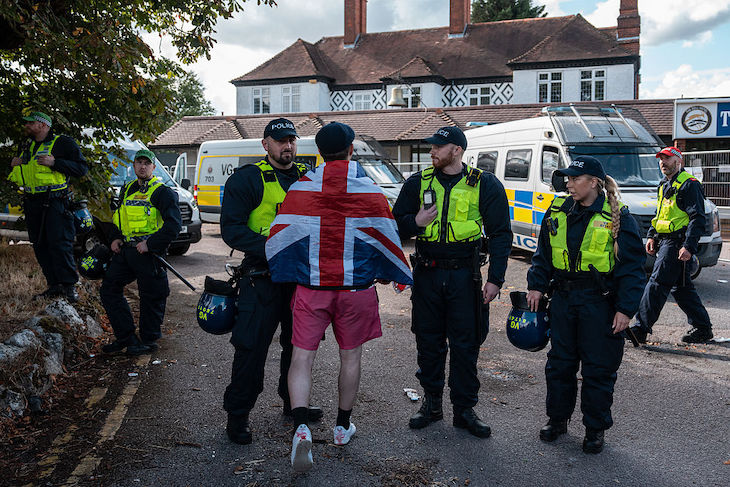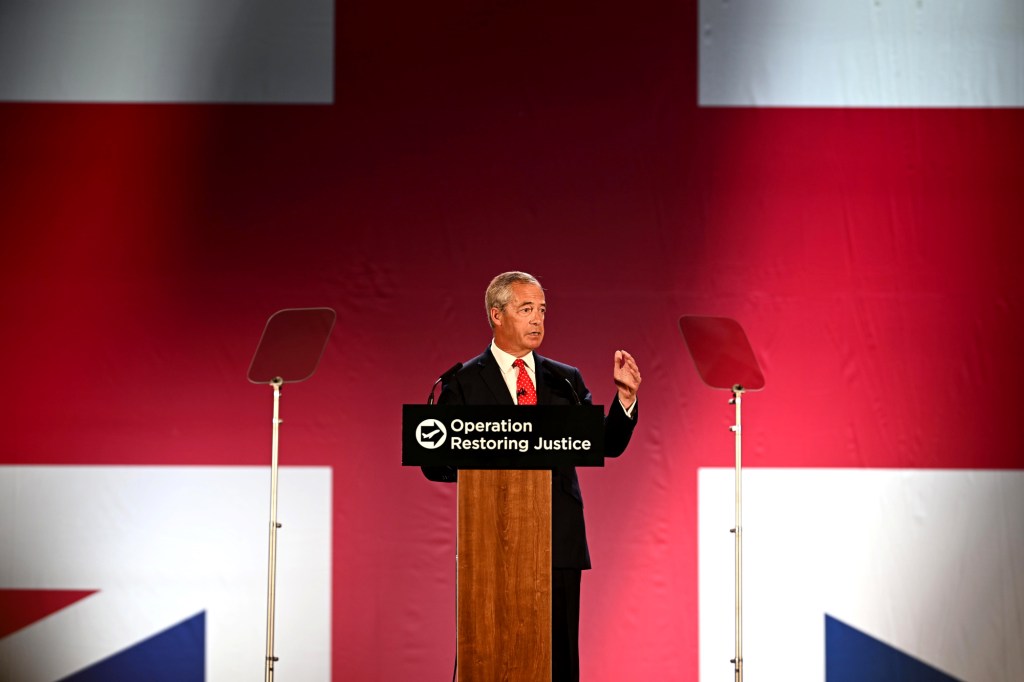If I had to summarise, in a word, the mood of the nation in 2025, I’d probably plump for fraught. There is something in the air that I can’t quite recall having sniffed before, the kind of crackle that might be quite exciting or intriguing if you were standing a little bit further back from it, flicking through the pages of a history book, maybe. But it’s rather different to live through it.
How quaint Britain’s big worries of the 1990s now seem
People like me, and probably you, were socialised in a more stable and reliable world, where everyone and everything muddled along. So we find it very hard to adjust to the return of history with a capital H.
That lost age on the domestic front in Britain, which lasted from about the end of the miners’ strike in 1985 up to the subprime crunch of 2008, was the era in which we assured ourselves that ‘things will sort themselves out’. We told ourselves that things would probably turn out fine; there was nothing much you can do about it, after all, so best just to potter along. No one wanted to run about squawking like Chicken Licken, who thought the sky was falling in.
This complacency was justified, because often – in that curious interregnum, which we mistook for how things were just going to be from now on – things often did sort themselves out, or at least they appeared to.
How quaint Britain’s big worries of the 1990s now seem! Let’s look back thirty years to the big news stories of 1995. Nick Leeson crashed Barings Bank, Eric Cantona kung fu kicked a football fan at Selhurst Park, pubs stayed open for the first time on Sunday afternoons, and Princess Diana granted an interview with Panorama. Ethnic strife and economic murk were forgotten, things of the past. It’s dizzying to realise that this was the world that ‘things could only get better’ came from.
This was a time when John Major’s government was in constant crisis. About what, exactly, one wonders now.
True, it was often the boring people during boring times who led us to where we are now. The subsequent first term of Tony Blair was also colossally dull, at least on the home front. But under that screen of fog, it ripped up and tore apart centuries of vital constitutional structure. We looked away, to Big Brother and Eminem as much that we rested so blithely upon was smashed up, boringly. Net migration, for example, rose from 48,000 in 1997 to 273,000 in 2007, reflecting the cumulative impact of incredibly tedious policies that nobody looked at. Were the results of that ever likely to just sort themselves out?
Where are we now? The years since 2008 have been ever more rancorous and turbulent. It’s been tempting to cling on to our illusions, and imagine we will somehow drift back to the age of security. Perhaps we’re imagining it all – after all, we still live (mostly) uneventful lives in an affluent, if retrenching, society.
But I fear we are just at the start of a return of ferments and upheavals, with our foundations seriously weakened. World politics is slipping back to the age of empires, with the big difference that this time we haven’t got one. We are back in the world of Shakespeare’s history cycles; endless battles, reverses, false hopes, the strange alliances of sworn enemies. It rumbles on and on and on, with the little people tossed about in the tides, grabbing whatever driftwoods of solace that they can.
And that is not unusual. Crack open any history book. It’s the natural state of things.
When Labour got in last year, we had a good old laugh at clownish figures like Otto English, who tweeted tweely that the ‘quiet’ was going to be such a refreshing change. ‘For the first time in many of our lives, actually Britain looks like a little haven of peace and stability,’ said Andrew Marr on Question Time. He might as well have donned a flashing neon sign reading HOSTAGE TO FORTUNE.
But. If we are feeling honest, and generous – and I do have occasional twinges of both – those of us of the same generation as such silly people can understand the impulse, their longing to believe in the return of the apparent stillness of our young adulthood (even if it was at least partly illusory).
Now even Tory moderniser Lord Finkelstein is admitting that he’s had his doubts all along, writing in the Times of the simmering atmosphere of 2025. ‘People’s failure to live and let live baffles me’, he says. On the immediate level, that sentence terrifies me; that someone so divorced from the basic reality of human beings could have been attached to the Conservative Party. But I understand too, because I also come from that world and that lost ‘family of man, Kumbaya, it’ll be fine’ age.
Believing what is convenient or reassuring rather than what’s true is great, so long as you can afford it. Continuing with it when you can’t is disastrous. For all we know, the Britain of 2025 may look like a paradise to the Britons of 2055. And that’s the scariest thing.








Comments